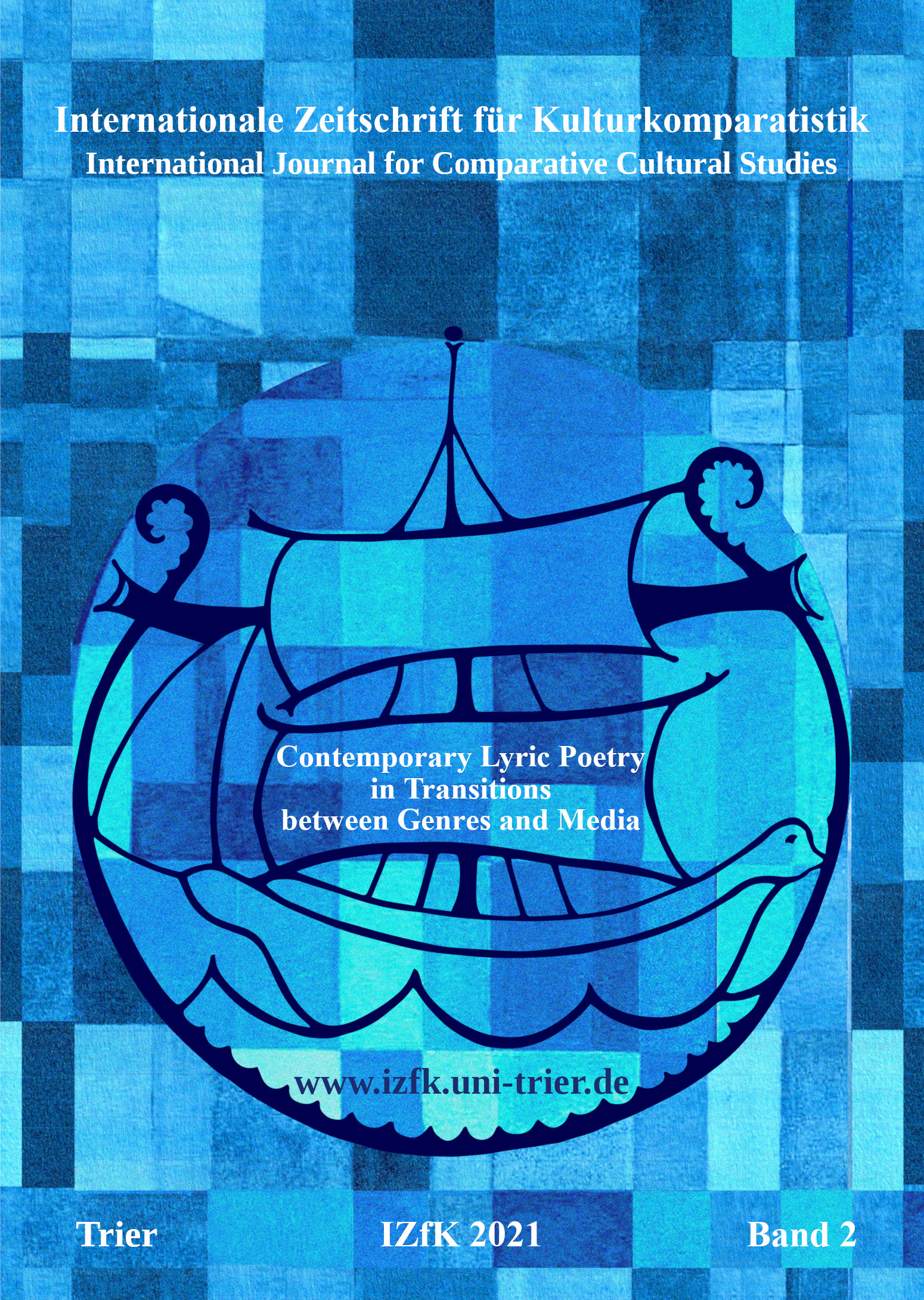Political Video Poetry in Russia: Eco-Social Turn and Biopoetics
Hauptsächlicher Artikelinhalt
Abstract
In this article, I analyze the most recent Russian video poetry as an amplification and semantic enrichment of the classic literature paradigm. My thesis is that new visual poetry produces a subtle, polysemous – but at the same time striking – political message within a synthetic artistic framework. I show how recent Russian social (also to be called political) poetry is developing what I call the aesthetics of environmental non-division. I focus on the art collective “The Group of Esfir’ Shub,” which was founded in 2017 by the artist and designer Polina Zaslavskaia. The group’s synthetic method of working with poems generates a “tropic connection between the text and the video,” which correlates or even confronts direct and figurative sign meanings of different media with each other. “Esfir’ Shub” emphasizes one of the essential features of new social poetry ‒ the problematization of corporeality as a phenomenon belonging to organic, living material, which affects the very character of subjectivity. The project “Esfir’ Shub” is situated on the border between visual eco-art and social poetry. What is more important, it represents new trends in Russian engaged aesthetics, which I call biopoetics ‒ a notion which has been intensely discussed in the last two decades.

